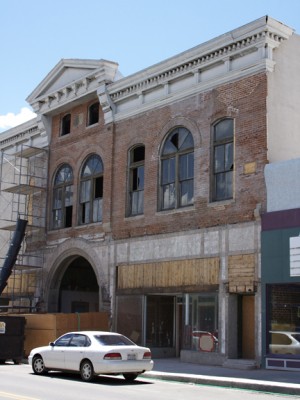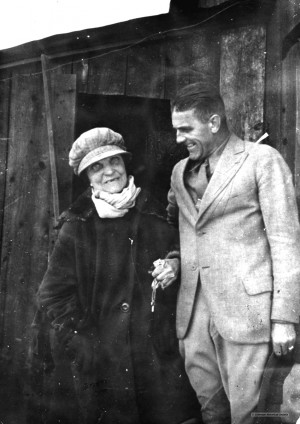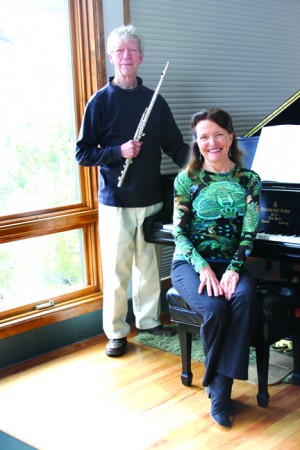Craig Childs is a writer who focuses on natural sciences, archaeology, and mind-blowing journeys into the wilderness. He has published more than a dozen critically acclaimed books on nature, science, and adventure. He is a commentator for National Public Radio’s Morning Edition, and his work has appeared in The New York Times, Los Angeles Times, Men’s Journal, Outside and Orion. His subjects range from pre-Columbian archaeology to U.S. border issues to the last free-flowing rivers of Tibet.
We caught up with Craig last month while he was between adventures.
Colorado Central: You just returned from Patagonia, you’re working on the proofs for your upcoming book, and you’re off on another desert walk imminently. Let’s start with Patagonia. What were you up to down there?
Craig: Yes, Patagonia. I was shadowing a documentary film crew down there for a month. They were running Chile’s largest river from source to sea, as well as doing some impressive foot travel in the high ends, across glaciers at the fringe of the Northern Patagonia Ice cap. The point of the film is to highlight issues aroud five dams proposed for this remote region. I’ll probably be doing a piece for Men’s Journal based on the trip. My ulterior motive for being there, though, is for a new book project I’m starting on. I was getting as close as possible to a major source of melting ice on the planet, following that melt downstream to the sea.
Colorado Central: You are participating in this year’s Colorado Art Ranch Artposium in Salida. What is your topic?
Craig: Water, of course. Its abundance, absence, vastness, microscopicness. I’m planning on going from the driest places on the planet to the wettest in my presentation, getting at the heart of what water is.
Colorado Central: Your next scheduled adventure between now and the Artposium is the Atacama Desert. Where is that, and what (besides water) will you be questing there?
Craig: The Atacama is also in South America. I’m heading down there with a photographer to set water caches and take a long walk in a dry and sublime landscape. Partly I’m there to write about the decline of global freshwater sources, and the privatization of water and what that has done to different parts of the world. In the Atacama, rivers and lakes have dried up from industrial use and villages that have been occupied for 400 years are now empty. My deeper reason for being there is just to be in the midst of one of the driest places on earth.
Colorado Central: We understand you live “off the grid.” Could you describe how you are doing that?
Craig: Sometimes tenuously. We rely on PV solar for our electricity and for years our winters have been fairly dark. We just bumped up the system and now we are basking in more electricity than we know what to do with. What does it mean to live off the grid? My definition is that it means you have to drive a long way to get anywhere. It’s not as environmentally saintly as it sounds. More than anything, it is just a lifestyle choice for us. There is something deeply satisfying about not being tied into the grid, and at night simply turning the electricity off.
Colorado Central: We’ve been reading your latest book, Animal Dialogues, in the manner you suggested – skipping around and alighting on various stories as the book falls open to them. It’s been fascinating, diverting, thrilling and moving by turns – sometimes all at once. What prompted you to begin “staring at animals”?
Craig: I think everyone stares at animals. It’s hard not to. It like a view into another world, an older world. We recognize ourselves in animals, and recognize something that is also growing more distant from us.
Colorado Central: One of the standout Animal Dialogues for us is the “Trout” entry – both as a meditation on the finicking art of fly fishing and as a tribute to your father. Do you plan to make any time for fishing on the Arkansas while you’re in Salida? Or is that pursuit a family affair?
Craig: Ah, fishing. I probably won’t on the Arkansas. I’m more of a tiny-creek guy. I grew up fishing the creeks of east-central Arizona, Mogollon Rim country, and for whatever reason I like fly fishing in tight little spaces where you lose a fly on practically every cast. It is more of a family affair, though. I’m not an avid fisherman. It is simply something I do.
Colorado Central: Speaking of your parents, could you expound a little on them? The picture we get from your writing is of an extraordinary couple of people. What were the greatest gifts you received from them?
Craig: My father was sort of a redneck philosopher, my mother an insatiable outdoor traveler – not the kind that might come immediately to mind. She just wanders out there. She taught me that even if you have no idea what you’re doing, you can charge right out there and somehow make it work. My father taught me it is a mad world and it’s going to kick you in the goddamn teeth, and that, too, has offered me a curious perspective from which I both write and travel.
Colorado Central: Your wife, Regan Choi, is a notable presence in your books. Are you still able to schedule adventures together now that you have a young family? How do you manage the parenting adventure with your schedule, anyway?
Craig: Our family is often a madhouse, leaping from day to day, loading up for wilderness or city or whatever comes next. It seems we do nothing but adventure together. Of course, adventure sometimes is just surviving until evening-toothbrushing. Parenting on my schedule is rather intense. I try not to be away from them too often, but these stories and my responsibility for understanding landscapes and history draw me away. When we can do it together, we do. It is certainly a challenge. My work has become more global lately. At the same time, I want to rein it back in. The locations on my docket are, indeed, exotic, but I am even happier being on foot in the Southwest, a place I am far from fully understanding.
Colorado Central: What will be the subject of your next book? When is it due to come out?
Craig: Deep geologic cycles and patterns of global apocalypse over the last 4.3 billion years. I’m basically writing about the ways in which the world ends, how those ends are built into this terrestrail system, and what role we humans are now playing. It’s a whopper of a book, an incredible amount of research and challenging field time where I’m in some desolate and powerful reaches. Funny thing, I find it is mostly about water. Ice, seas, lakes, rivers. Nothing I write about strays too far from water.
Well, that’s the one I just started work on. My actual next book, coming out in August, is Finders Keepers: A tale of archaeological plunder and obsession. That one was a wild ride, and there were times I didn’t think I was going to get out of it in one piece. It’s a tour through the seedy underbelly of archaeology from smugglers to dealers to archaeologists to museum curators. I took a long, hard, and very personal look at all the players in global antiquities. And I use everyone’s real names.
Colorado Central: What were your primary literary influences? Whose works are currently (or still) inspiring you?
Craig: I’m relying on poetry mostly these days. I think it has something to do with being a parent. I don’t have time to read a book. I need my fix on one page, condensed material. So, poetry. Sharon Olds, Mary Oliver, Pablo Neruda, Billy Collins. As far as hardcore literary influences, I’d have to put Barry Lopez at the top. But way back in the early days, 7th grade or so, it was Ann Zwinger showing me around her literary aspen groves.



